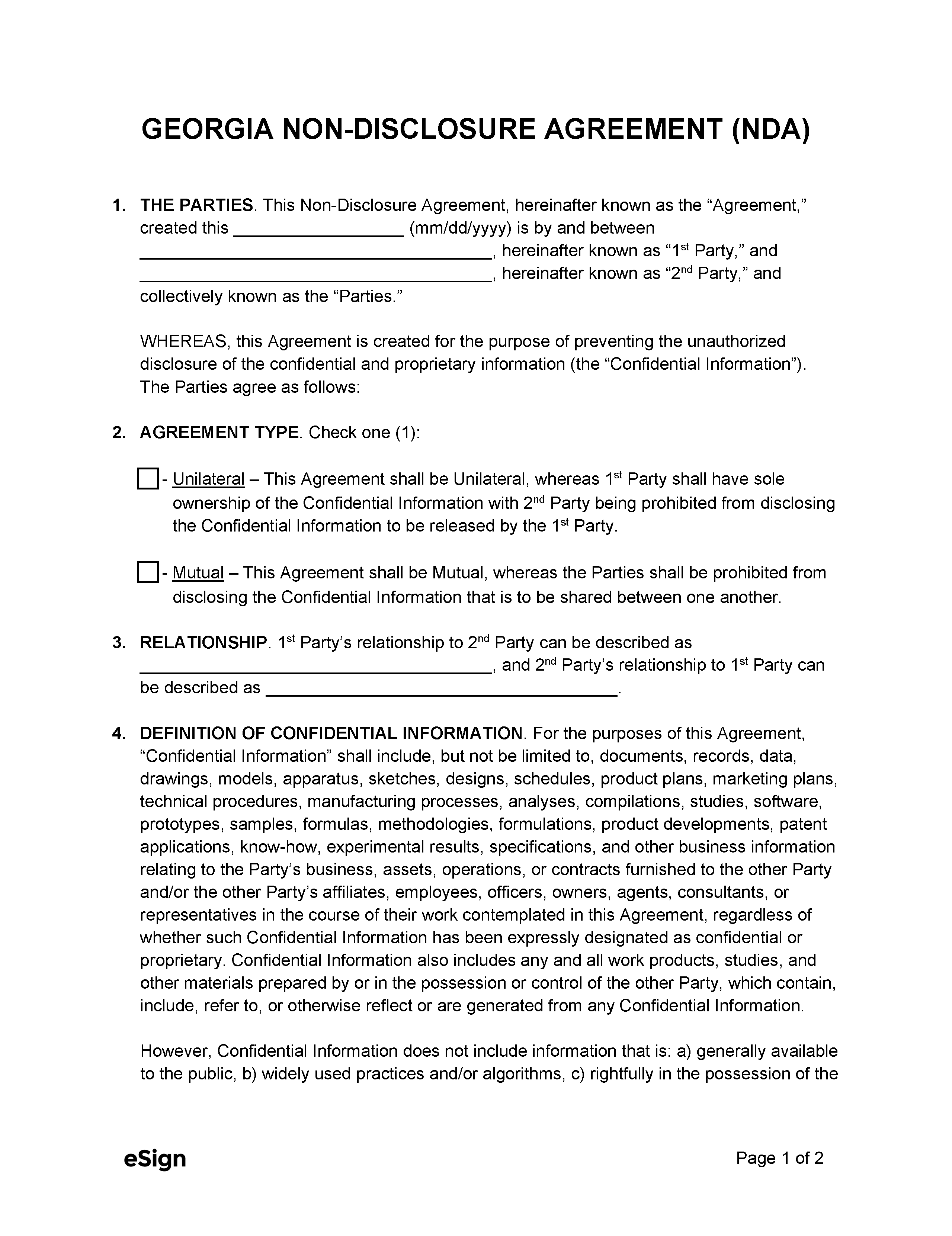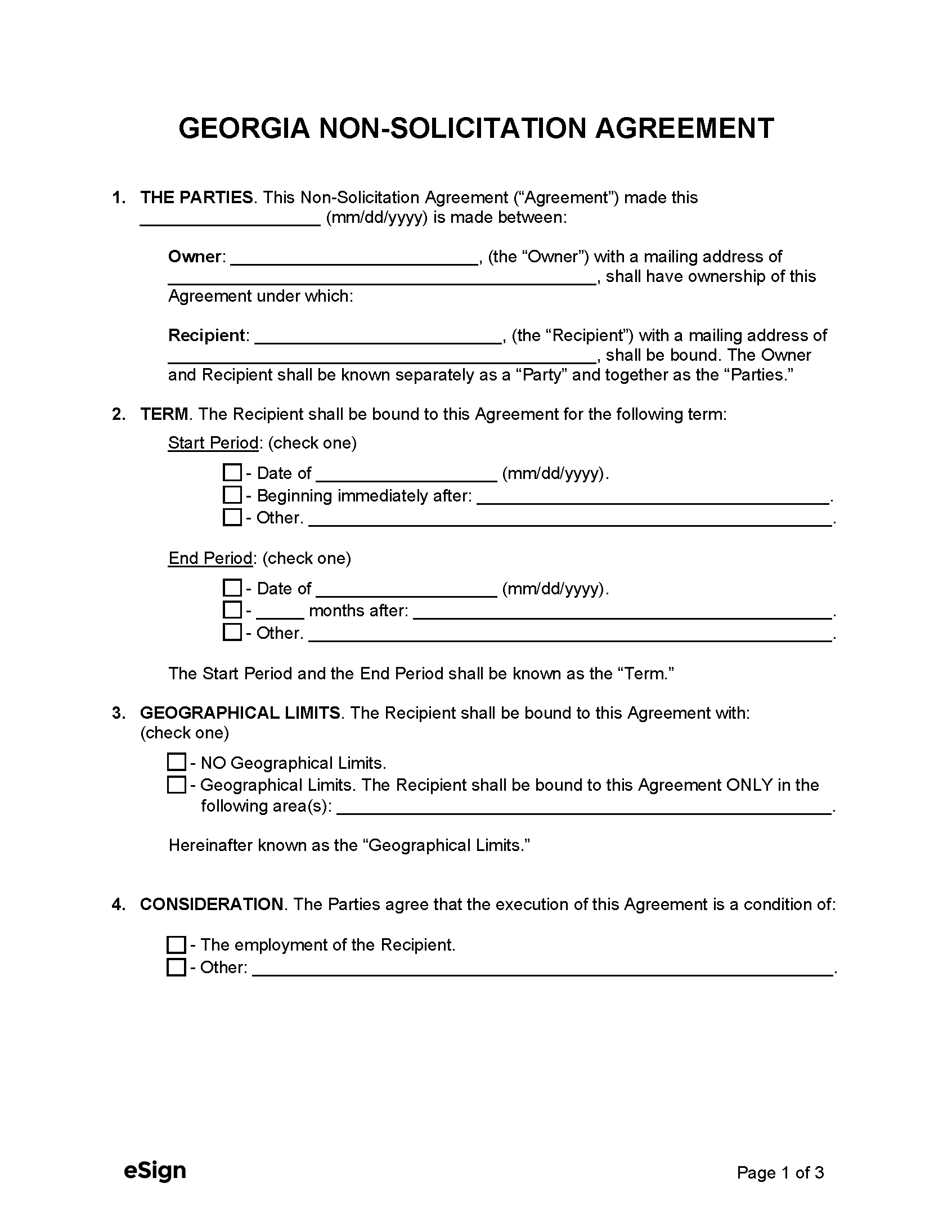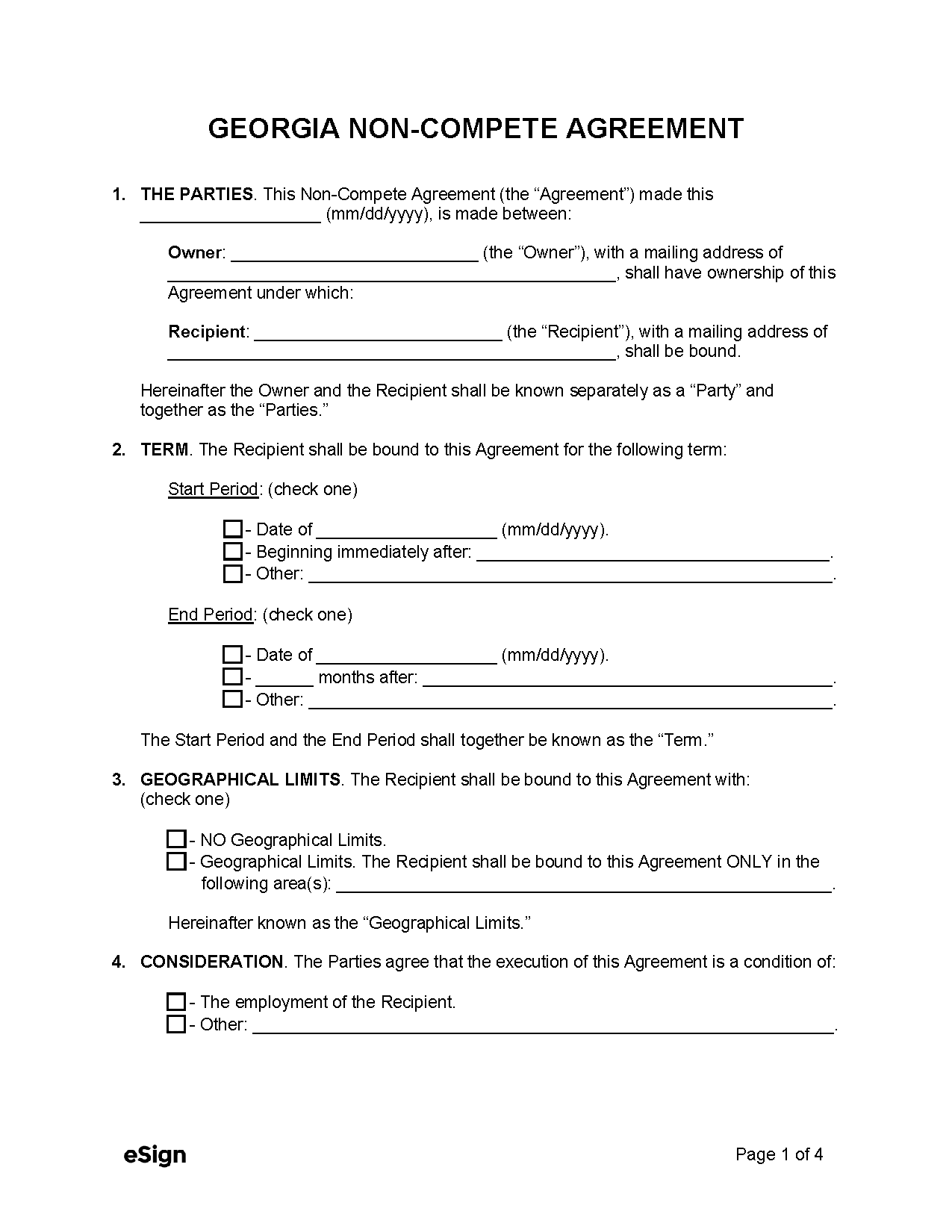In addition to prohibiting competition, non-compete agreements often contain non-disclosure and non-solicitation covenants as well. These covenants allow employers to protect their trade secrets and prevent ex-employees from contacting their customers, clients, and employees.
Contents |
Enforceability in Georgia
Non-compete clauses are enforceable, though there are a number of requirements that must be satisfied. The agreement must contain reasonable time, area, and activity restrictions and can only be used to protect a legitimate business interest.[1] Furthermore, the courts will determine enforceability using the following policy:
“The court must balance the interest the employer seeks to protect against the impact the covenant will have on the employee, factoring in the effect of the covenant on the public’s interest in promoting competition and the freedom of individuals to contract.“[2]
Employees bound by a non-compete agreement signed on or after May 11, 2011, must meet one of the qualifications listed in Ga. Code § 13-8-53(a) for the agreement to be enforceable.[3]
When it IS Enforceable
- Employees. A non-compete agreement is enforceable if the employee meets one of the four following requirements:
- The employee:
- 1) Solicits customers or prospective customers on a regular basis.
- 2) Routinely produces sales, orders, or contracts.
- 3) Has the three following responsibilities listed below:
- The employee primarily manages the company, or a department/subdivision thereof;
- The employee manages or oversees the work of at least two (2) other employees; and
- The employee has the capacity to hire, discharge, promote, or demote employees, or has considerable influence in those decisions.
- 4) Performs work that is essential to the company.[3]
- The employee:
- Selling an entity. Non-competes can be enforced against the seller of a business, partnership, LLC, or other entity.[4]
- Other applications. A restrictive covenant not to compete can also apply in the following relationships:
- Lessor-lessee
- Partnership-partner
- Franchisor-franchisee
- Employer-employer
- Distributor-manufacturer[4]
When it’s NOT Enforceable
- Restricting an attorney. Except for agreements concerning retirement benefits, an attorney’s ability to practice law may not be restricted by agreement.[5]
- Adverse to public interest. A non-compete that goes against public policy as relayed in § 13-8-2(a) is unenforceable.[6]
Maximum Time Period
Depending on the party being restricted, Georgia state statutes set different time periods that the courts may presume reasonable.
- Employee. Two (2) years maximum after the employee’s termination is presumed reasonable. When determining reasonableness, a court may take into account the extent of adverse financial effect that the restriction will have on the employee.[7]
- Distributor, dealer, franchisee, lessee, or licensee. Three (3) years maximum after the last day that business was conducted with the employer is presumed reasonable.
- Seller of a company. Periods longer than five (5) years or the period in which the owner receives payment, whichever is longer, is presumed unreasonable.[8]
The courts will also presume a non-compete with a time restriction equivalent to the duration of the parties working relationship as valid, so long that the restriction is in accordance with the above periods.[9]
Geographical Area
Georgia statutes state that a geographic scope covering the areas where the employer operated (including areas unknown at the time of the agreement’s execution) is valid so long that the restriction is reasonable. Otherwise, the party preparing the agreement may also include a list of competing employers for which the restricted party may not work for the duration of the non-compete.[9]
Consideration
Employment or continued employment have previously been recognized by courts as valid consideration for a non-compete agreement.[10][11] However, the court also held that the continued employment of an employee was not sufficient consideration as the individual was already entitled to employment and the owner was not permitted to fire the employee for failure to sign the non-compete.[12]
Sources
- Ga. Code § 13-8-50
- Beckman v. Cox Broad. Corp., 250 Ga. 127, 128-30, 296 S.E.2d 566, 568 (1982)
- Ga. Code § 13-8-53
- Ga. Code § 13-8-52
- Georgia Rule of Professional Conduct 5.6
- Ga. Code § 13-8-2
- Ga. Code § 13-8-58(d)
- Ga. Code § 13-8-57
- Ga. Code § 13-8-56
- Thomas v. Coastal Indus. Servs., Inc., 214 Ga. 832, 832-33, 108 S.E.2d 328, 329 (1959)
- Griffin v. Vandegriff, 205 Ga. 288, 293-95, 53 S.E.2d 345, 349 (1949)
- Glisson v. Glob. Sec. Servs., LLC, 287 Ga. App. 640, 641-42, 653 S.E.2d 85, 87 (2007)
Related Forms (2)

Download: PDF, Word (.docx), OpenDocument

Download: PDF, Word (.docx), OpenDocument
